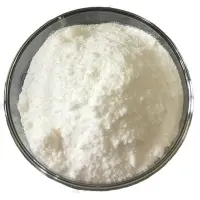-
Categories
-
Pharmaceutical Intermediates
-
Active Pharmaceutical Ingredients
-
Food Additives
- Industrial Coatings
- Agrochemicals
- Dyes and Pigments
- Surfactant
- Flavors and Fragrances
- Chemical Reagents
- Catalyst and Auxiliary
- Natural Products
- Inorganic Chemistry
-
Organic Chemistry
-
Biochemical Engineering
- Analytical Chemistry
-
Cosmetic Ingredient
- Water Treatment Chemical
-
Pharmaceutical Intermediates
Promotion
ECHEMI Mall
Wholesale
Weekly Price
Exhibition
News
-
Trade Service
December 25, 2020 /--- Two new studies provide encouraging evidence that infection with SARS-CoV-2 coronavirus may provide some protection against future infections.
researchers found that people who produced antibodies to the coronavirus were much less likely to test positive again for up to six months or more.
the results were published in the medRxiv preprint server and the NEJM journal under the titles "Real-world data suggest antibody positivity to SARS-CoV-2 is associated with a developed risk of ion" and "Antibody Status and Agents of SARS-CoV-2 Infected in Health Care Care".
the occurrence of SARS-CoV-2 PCR-positive results based on the baseline state of the antiSRAS-CoV-2 hedgehog protein IgG antibody.
from NEJM, 2020, doi:10.1056/NEJMoa2034545.
these results bode well for the vaccine, which stimulates the immune system to produce antibodies attached to SARS-CoV-2, helping to eliminate the virus.
the first study, Dr. Ned Sharpless, director of the National Cancer Institute, said the researchers found that people who received antibodies from natural infections were "much less at risk . . . The same protection you get from an effective vaccine "prevents re-infection with the virus."
he said re-infection was "very, very rare."
the first study not related to --- many U.S. federal researchers turned to coronavirus research because of the COVID-19 pandemic.
two types of tests were used in both studies.
is an antibody that can stay in the blood for several months after infection.
another type of test that uses the nasal cavity or other samples to detect the SARS-CoV-2 virus itself or its fragments, indicating current or recent infections.
study involved more than 12,500 health workers at Oxford University Hospital in the UK.
of the 1,265 people who initially had SARS-CoV-2 antibodies tested positive for active infection over the next six months, and neither showed symptoms.
contrasts with 11,364 workers who initially did not have SARS-CoV-2 antibodies, 223 of whom tested positive for infection within about six months.
first study involving more than 3 million people who tested for SARS-CoV-2 antibodies from two private laboratories in the United States.
only 0.3% of those who initially had antibodies tested positive for SARS-CoV-2 coronavirus, compared with 3% of those without antibodies.
"it's very gratifying," said Sharpless, a researcher in the second study, who observed a 10-fold reduction in the risk of re-infection if antibodies were present.
Joshua Wolf, an infectious disease specialist at St. Jude Children's Research Hospital in the U.S., who wasn't involved in the two studies, said the findings were "not surprising . . . but it's really reassuring because it tells people that immunity to the virus is very common."
" he said, antibodies themselves may not provide protection, they may just be other parts of the immune system (such as T-cells) can resist any new virus exposure signals.
we don't know how long this immunity will last," Wolf added.
"more than one case of SARS-CoV-2 infection has been confirmed, so "people still need to protect themselves and others by preventing re-infection."
(Bioon.com) Reference: 1. Raymond A. Harvey et al. Real-world data suggest antibody positivity to SARS-CoV-2 is associated with a decreased risk of future infection. medRxiv, 2020, doi:10.1101/2020.12.18.20248336.2.Sheila F. Lumley et al. Antibody Status and Incidence of SARS-CoV-2 Infection in Health Care Workers. NEJM, 2020, doi:10.1056/NEJMoa2034545.3.Studies find having COVID-19 may protect against reinfection。







